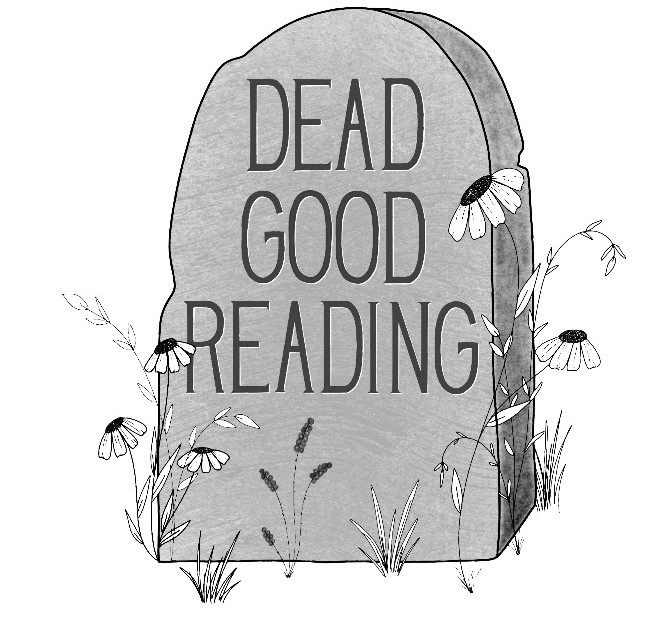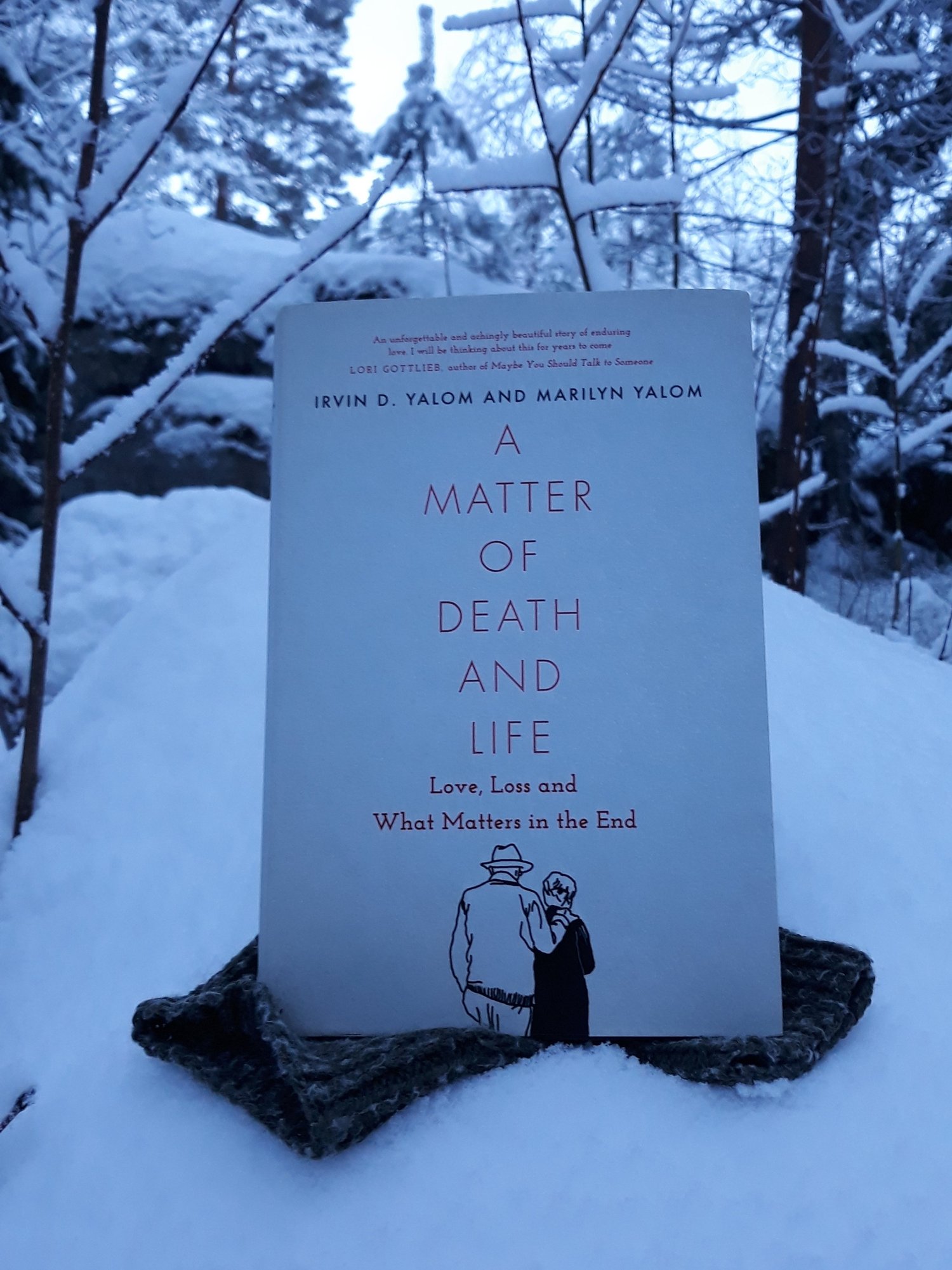Happy 2022 everyone! This is my first blog after a bit of a hiatus as I finished my postdoc at the University of Surrey. A downside is that I am now unemployed. The upside is that I have more time reading books and writing about them! I don’t really believe in New Year’s Resolutions (and also am not really good at them) but one of my goals I set out last year was to write a weekly blog (and those following Dead Good Reading know I did not meet that goal). But this year I will still foolishly aim for this whilst realistically knowing it is more likely going to be bi-weekly (and thanks to the English language this can mean either twice a week or every other week ;-))
A Matter of Death and Life: Love, loss and what matters at the end is a lovely account in which Irvin Y. Yalom and Marilyn Yalom talk about the realities of growing older. Irvin is a well-known psychiatrist and author who has written extensively about death anxiety (since reading this book, Staring at the Sun has moved higher up the TBR list) and Marilyn was a feminist writer and historian with a keen interest in French literature.
This book is a welcome addition to the literature on ageing, as relatively little has been written about growing older as it happens. Obviously, there are many memoirs out there that reflect on later stages of life but I applaud Marilyn for suggesting to start this book project with her husband. She was probably aware at that time that she would not be living for much longer. The book gives a good insight into the thoughts, fears and feelings of an older couple faced with the end of life.
“We write to make sense of our existence, even as it sweeps us into the darkest zones of physical decline, and death. This book is meant, first and foremost, to help us navigate the end of life’ ”
— Matter of Death and Life: xiii
Irvin and Marilyn alternate writing chapters. Marilyn, confronted with multiple myeloma, a form of cancer that turns out to be terminal, talks about receiving cancer treatment, the experience of living with a body that is ageing and increasingly letting her down, and the reality of leaving her family behind. As she is acutely aware of dying, she also starts to think about all the stuff she has collected in her life, particularly her large collection of French books. She starts to divest some of her belongings, to both make this process easier for her family, but to also give her books (and herself) a legacy.
Irvin, on the other hand, describes in his chapters his fears of becoming a widower, recounts stories of his psychiatric practice in which he has helped others cope with death anxiety, and he also returns to his own work such as staring at the Sun, to see if his own words can help him in the same way they have helped others.
They read each other’s chapters so the book is both individual reflection and conversation with the chapter of the other:
“I just read Irv’s chapter on rereading Staring at the Sun. I am moved and unsettled. He is already grieving my demise. How odd that I should be the one who will probably die first, when statistically it is more frequently the husband who dies first. Even the English language revels the expected difference between the genders. ‘Widower’ for the husband has at its rood the word for ‘widow’ for the wife. More typically when there are two gendered forms for the same word, the root is masculine. ”
— Marilyn in a Matter of Death and Life: 63
About halfway through the book Marilyn becomes too unwell to continue to write, so Irvin takes over. In this second half of the book, Irvin talks about Marilyn’s dying and death and his subsequent move into widowhood. This change in format, caused by a change in life’s circumstances also serves as a beautiful metaphor that life might not go according to plan. Instead, I believe the death of Marilyn has created a more beautiful and more profound book compared to if she still would have been alive.
I do have to offer a small note of criticism, as I was disappointed to see that neither Marilyn nor Irv quote any profound statements on death and dying made by women. They both find meaning in quotes of Greek philosophers and many others, but, particularly given Marilyn’s background in feminist writing I was hoping for some strong quotes made by women! Surely they must exist? But don’t let this fact defer you from picking up this book as it is very much unlike most books I have read.
This book celebrates the lives of two people who seem to have lived the lives many authors dream of: having a writing cabin in your own back yard, having multiple book deals and being able to travel the world to write these books in beautiful places. But as romantic their writing lives and their love story is, Marilyn and Irv are also still mortal. This book is an honest and moving account about this fact which will appeal to many people.


Leave a Reply